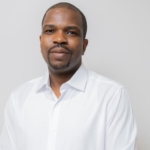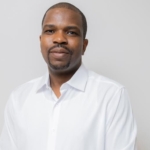
Every fiscal year, the Government of Ghana spends a staggering GH¢12.2 billion, approximately US$810 million, just paying the salaries and allowances of health-sector workers.
This enormous wage bill consumes nearly 80 percent of the Ministry of Health’s entire budget, leaving little room for essential items such as medicines, diagnostic equipment, research, and infrastructure.
In effect, almost every cedi that enters the health sector goes to wages before a single patient is treated or a single new hospital bed is built.
If even a quarter of that amount, about GH¢3 billion or roughly US$200 million, were redirected toward oversight, capital investment, and hospital autonomy, Ghana could fund a national intensive care and diagnostic expansion program, modernize teaching hospitals, and build dozens of community health centers each year.
This imbalance reveals not just a budgeting flaw but a deep structural weakness that prioritizes payroll over performance and bureaucracy over outcomes.
Across the developed world, public healthcare systems have evolved away from centralized bureaucratic control toward models that combine autonomy, accountability, and social responsibility.
In countries such as the United States, the United Kingdom, and Canada, governments have learned that effective healthcare delivery does not depend on micromanaging hospitals but on empowering them.
Instead of treating hospitals as extensions of the civil service, these countries have turned them into nonprofit corporations or autonomous trusts that pursue a public mission with professional management.
For instance, in the state of Massachusetts, often referred to as the medical Mecca of the world, world-renowned hospitals such as Massachusetts General, Brigham and Women’s, and UMass Memorial operate as nonprofit institutions.
They reinvest their surpluses into medical research, facility expansion, and community outreach rather than distributing profits to shareholders. Their nonprofit status grants them tax exemptions, but it also compels them to demonstrate measurable community benefit through free clinics, medical scholarships, and outreach programs.
The state regulates these hospitals through licensing and insurance oversight, but it does not employ every nurse, doctor, or cleaner. This independence allows hospitals to innovate, remain efficient, and be directly accountable to their boards and the communities they serve.
Ghana’s healthcare structure, however, remains trapped in a colonial administrative mindset that centralizes power, funding, and decision-making. Hospitals like Korle Bu Teaching Hospital and the 37 Military Hospital have existed for decades, yet continue to operate as bureaucratic arms of the state.
Strikes by nurses, procurement scandals, and shortages of essential drugs are the predictable results of a system designed to control rather than empower. If the NDC government identifies flaws with our post-colonial approach to decentralization, this is a critical case at hand.
We have created the illusion of autonomy without the substance of independence, a system where responsibility is diffused, authority is hoarded, and efficiency is perpetually lost in translation between ministries and management.
It is almost inconceivable that Korle Bu Teaching Hospital, Ghana’s premier referral center established in 1909, still cannot independently purchase its own MRI machines or finance a modern kidney dialysis unit without waiting for government approval.
More than a century after its founding, this flagship hospital still depends on parliamentary allocations for basic infrastructure and equipment.
No institution of that age and importance should be so financially crippled. Such dependence reflects the broader inefficiency of a centralized system that denies hospitals the autonomy to manage their own affairs responsibly.
Meanwhile, recent revelations from the ongoing Public Accounts Committee hearings have further exposed the rot within Ghana’s health sector.
Audit exercises across regional health directorates and district hospitals have revealed inflated prices for medical supplies, diversion of drugs, and the sale of government-procured equipment to private vendors.
Some hospital administrators and procurement officers have been implicated in schemes to inflate invoices or falsify purchases. These findings confirm what many Ghanaians already believe: that anything belonging to the government is handled carelessly because there is little sense of ownership or fear of consequence.
This culture of mismanagement and impunity thrives in an environment where accountability is weak and supervision is minimal.
Health workers and administrators often feel detached from responsibility because their salaries and operations come directly from the central government.
Oversight bodies are distant, audits are slow, and disciplinary action is rare. If Ghana’s hospitals were structured as nonprofit organizations with local boards and professional management, such abuses would be easier to detect, prevent, and punish.
The consequences of this systemic weakness go beyond financial loss. They manifest in lives lost due to medical negligence and indifference.
In recent years, the nation has been shaken by multiple cases of medical malpractice and neglect. In 2025, a pastor accused St. Francis Xavier Hospital in Assin Fosu of negligence that caused his pregnant wife’s death.
Earlier, Ridge Hospital and the Ministry of Health were found liable for a woman’s death due to negligent care, while the 37 Military Hospital was ordered to pay more than GH¢1 million in damages over a 2015 maternal death.
Beyond these tragic cases lies a deeper social problem. In many public hospitals today, nurses and midwives sit at post chewing gum and chatting while patients wait in pain.
Some treat patients with insults and irritation. Not long ago, a viral video showed a midwife berating a woman in labor for not pushing hard enough. Such unprofessional behavior, born of the mindset that “I am a government employee,” represents a moral decay that no amount of funding can fix.
Under a nonprofit, contract-based hospital system, this culture would change dramatically. Staff would know that their continued employment depends on performance and patient satisfaction, not government protection.
Hospitals would have the freedom to set standards, conduct evaluations, and reward merit while dismissing those who fail to meet expectations.
The nonprofit model would also ensure fair and attractive remuneration, funded through multiple income streams rather than an overstretched government payroll.
Hospitals under this new structure could generate their own income through a variety of innovative channels. These include public-private partnerships with local industries, revenue from diagnostic and specialized services, medical tourism, research collaborations, and community endowments.
Hospitals could also attract grants from international health organizations, corporate social responsibility programs, and philanthropic foundations. Some could establish training centers or continuing education programs for health workers across West Africa, turning knowledge into a sustainable revenue source.
With such creativity, hospitals would not only be self-sustaining but would reinvest profits into improving care, expanding facilities, and supporting community health initiatives.
The current payroll structure, where every health worker from surgeon to janitor is paid directly by the Controller and Accountant General’s Department, is inefficient and obsolete. It was created for an era of colonial administration, not for a 21st-century nation seeking progress.
This centralization discourages initiative, delays hiring, and suffocates innovation. No modern country still runs its hospitals as civil service departments. Government funding must therefore shift from operational dependency to strategic empowerment.
Rather than carrying the full wage bill of all hospital staff, the government should focus on grants, insurance reimbursements, and capital investments tied to performance. Hospitals must generate and manage their own operational budgets with transparent auditing and community oversight. This will drive efficiency and discourage waste.
Health professionals should also be reclassified and directly contracted by hospitals rather than the state. After passing their licensure examinations, they should apply for employment at hospitals, negotiate their terms, and be evaluated based on their performance. This contract-based model will promote meritocracy, reduce complacency, and restore professionalism in the health sector.
Some critics may argue that such reforms could create job insecurity or exploitation. Yet the current situation is far worse. Many health workers wait years after graduation for posting, and some go a full year before receiving their first paycheck. The inefficiency already exists; reform would simply replace it with accountability and order.
Ultimately, transforming Ghana’s hospitals into nonprofit, semi-autonomous institutions and introducing contract-based employment will not only restore discipline and efficiency but also rebuild confidence in public institutions. When management and staff are held accountable to performance rather than politics, Ghana will finally begin to create a healthcare system that is both ethical and world-class.
This reform goes beyond hospitals. It is a blueprint for national renewal, a demonstration that Ghana can trust its own people to manage public goods responsibly.
When accountability is embedded in our systems, innovation follows, confidence grows, and prosperity spreads. The time has come to rebuild our healthcare system not as a bureaucratic liability but as a model of sustainable, community-driven service delivery.
The author, Manaseh Mawufemor Mintah, PhD, holds PhD (Environmental Studies) | LLM (International Minerals and Energy Law and Policy) | JD (Environmental Law) | MA (Sustainable International Development) | BA (African Studies – History and Politics) Researcher on Governance, Mining Policy, and Education Equity
- President Commissions 36.5 Million Dollars Hospital In The Tain District
- You Will Not Go Free For Killing An Hard Working MP – Akufo-Addo To MP’s Killer
- I Will Lead You To Victory – Ato Forson Assures NDC Supporters
Visit Our Social Media for More




